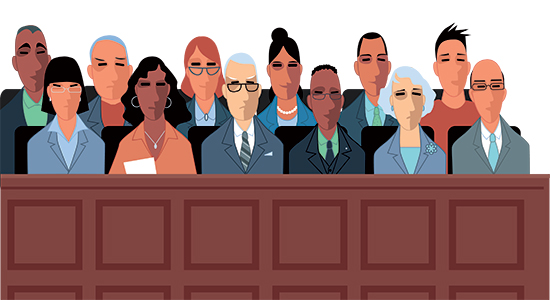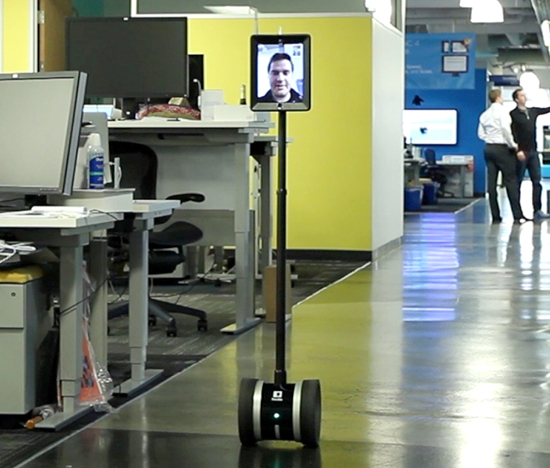Did You Know
The Posthumous Decision

Last month, the U.S. Court of Appeals for the Ninth Circuit issued an en banc decision, concluding that salary history is not relevant in gender pay cases under the Equal Pay Act. An employer cannot use salary history to justify paying women less.
The decision is noteworthy in itself, since the federal circuits appear split on this issue.
Another interesting aspect of the case is that one of the Ninth Circuit judges, Judge Steven Reinhardt, fully participated in the case, cast his vote, and wrote the majority opinion. He died before the opinion was issued, but it was issued posthumously.
That would not happen at the U.S. Supreme Court, because opinions are not treated as final until issued. Thus, justices can always change their minds or make revisions until the point of issuance.
“In other words, if a justice can make changes in an opinion up to the time it is issued, a justice’s death before then makes the opinion an unfinished product not suitable for being handed down,” wrote Tony Mauro for Law.com.
Source: Courthouse News Service; Law.com
Quotable
“If the court determines
that an objective observer
could view race or ethnicity
as a factor in the use of the
peremptory challenge, then
the peremptory challenge
shall be denied.”

– Language in a new jury selection rule adopted
last month by the Washington Supreme Court.
Reportedly, it’s the first rule of its kind in the
country. It allows a peremptory strike to be
denied if an “objective observer” could believe
the strike was based on “implicit, institutional,
or unconscious biases,” not just “purposeful
discrimination” based on race or ethnicity.
On the Radar
4 Must-know Resources for Veterans

Memorial Day, May 28, is a time to honor our military men and women who have died while serving and sacrificing for our country.
It’s also a good time to thank and support our living veterans. The legal community in Wisconsin has numerous resources specifically for veterans, including:
-
Veterans Law Center at the U.W. Law School, a free walk-in clinic that serves low-income veterans and their families. (608) 890-0226
-
Veterans Small Business Project at Legal Action of Wisconsin, assisting veterans to launch new businesses. (414) 274-3065
-
Veterans Homelessness Prevention Services at Legal Action of Wisconsin, providing assistance for stable housing. (414) 345-3917
-
Legal Assistance for Military Personnel, State Bar of Wisconsin, connecting low-income veterans to free legal services by volunteer attorneys. (800) 362-9082
Good Idea
The Double 2 Robot: When You Can’t Be There

At the University of California at Irvine School of Law, a pregnant first-year law student’s doctor ordered her on bed rest 32 weeks into her pregnancy. This cut into the first three weeks of the semester. She thought she might need to miss the semester.
But UCI’s Disability Services Center had a solution: the Double 2, a telepresence robot.
“It’s just an iPad on wheels, you know, Skype on wheels or Facetime on wheels,” David Cann, co-founder of Double Robotics, told the ABA Journal.
The law student, Tess Messiha, could control the Double 2 through an application on her computer at home. She could turn the device to see other students, and the law professor could make eye contact with her and call on her just as if she were physically present.
Speaking of innovation, nominations for 2018 Wisconsin Legal Innovators are due by June 30. Tell us about the innovators and ideas that are changing Wisconsin’s legal landscape, making it better for clients, for lawyers, and for the profession. Learn more at thatsafineidea.org.
By the Numbers
32
The number of President Trump judicial appointments confirmed by the U.S. Senate, including one U.S. Supreme Court justice (Neil Gorsuch), 14 federal appeals court judges (including one for the U.S. Court of Appeals for the Seventh Circuit), and 18 federal district judges.
There are still 149 vacancies, with nominations pending for 69 seats. Two of them are on the Seventh Circuit Court of Appeals, including a Wisconsin-based seat.
Milwaukee attorney and former Milwaukee County Circuit Court Judge Michael B. Brennan received a favorable vote out of the Senate Judiciary Committee in February, and his nomination awaits a confirmation vote by the Senate to fill the longest standing federal appeals court vacancy in the country (more than eight years).
Last month, the Senate Judiciary Committee approved two other Trump nominations to fill the remaining vacant seats on the Seventh Circuit Court of Appeals: Michael Y. Scudder and Amy J. St. Eve.
Scudder is a partner in the Chicago office of Skadden, Arps, Slate, Meagher & Flom LLP. St. Eve is currently a judge for the U.S. District Court for the Northern District of Illinois. Both nominations await confirmations to put the Seventh Circuit Court of Appeals at full strength.
Tech Tip
Don’t Be a Victim: Secure Your Accounts!

The list of major companies announcing data breaches of their customers’ personal information continues to increase at an alarming rate.
Recently, we highlighted a website, https://haveibeenpwned.com, which allows users to enter their email address to determine whether it was comprised in known data breaches. Data breaches breed collateral fallout, because many consumers use the same email address and password for multiple websites.
If your account has been comprised, immediately change your password for the breached account and for any other account with the same email address and password.
Get into the habit of creating strong and unique passwords for each account. If you need help creating a unique password, Norton’s free password generator can help. Go to https://identitysafe.norton.com/password-generator/.
If you need a secure method to store your new login credentials, consider password managers, such as LastPass or 1Password. Although no software is completely impenetrable, password managers have additional layers of security. Regardless of the method you use to store passwords, understand the software’s security protocols and use highly secure methods when storing sensitive information.
Source: Christopher C. Shattuck, Practice Management Advisor (Practice 411™), State Bar of Wisconsin
